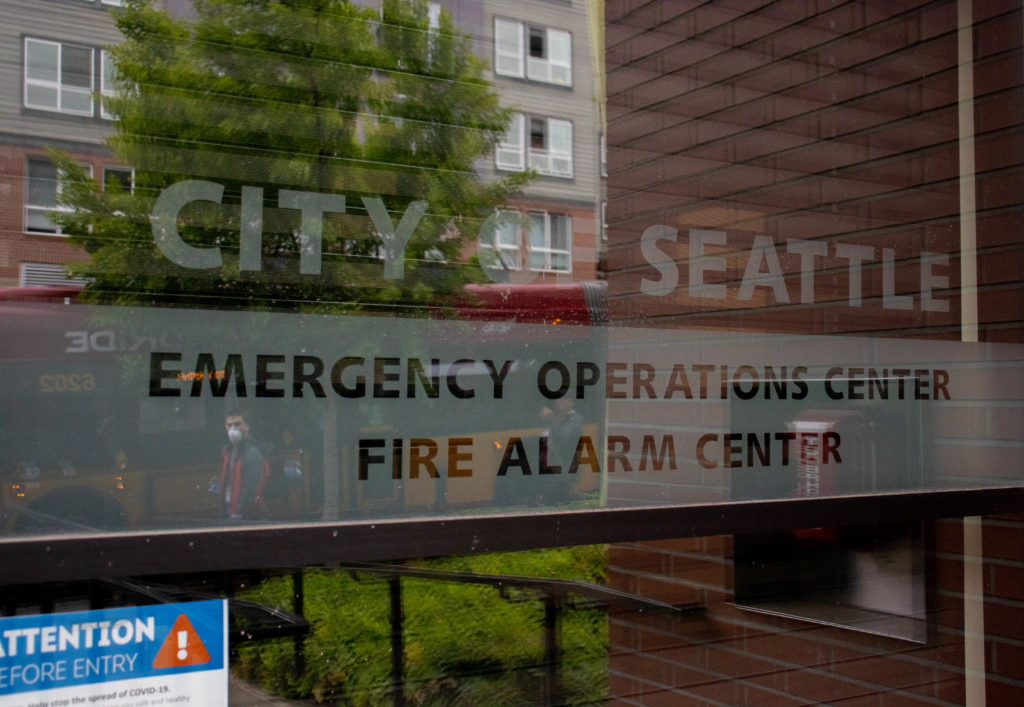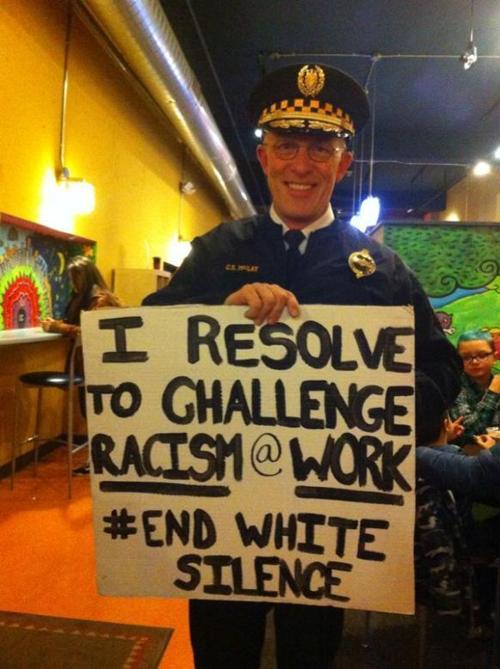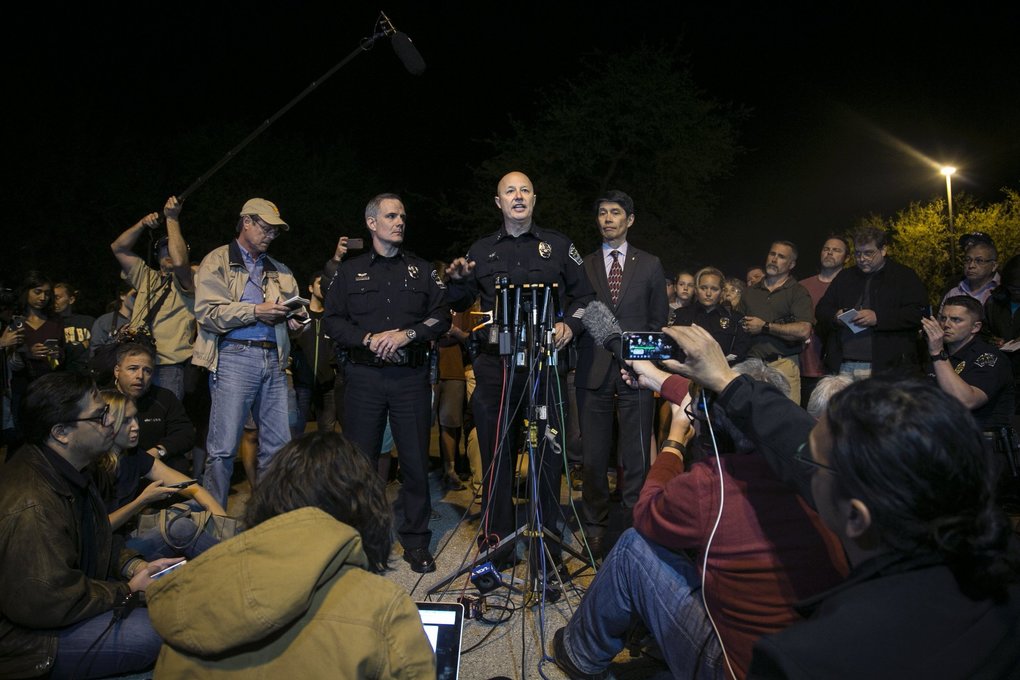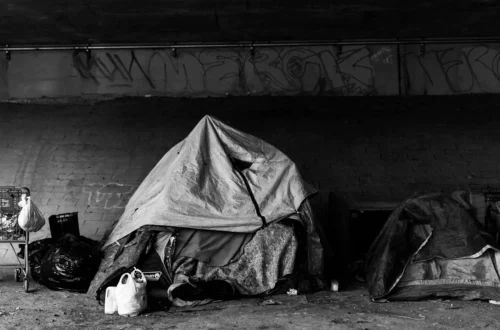From her extremely privileged upbringing to her self-induced eventual downfall, Seattle Mayor Jenny Durkan has relied on a sordid family history of baiting Black and Brown voters with sugar-coated promises that get exposed as being inedible.
Despite her repeated claims of championing these communities of color — a claim she frequently parrots to remind everyone that she’s with the band — very little has actually been accomplished to advance the voiced concerns of police funding, community development, protesters’ amnesty, and the relentless, targeted Seattle Police assaults on unarmed Black, Brown and Indigenous men, women, and children.
Based on her own standards of leadership, Mayor Durkan has dramatically failed in protecting to uphold these storied communities.
For someone who has it all, Jenny Durkan has done next to nothing with everything on the line.
So the question now isn’t whether or not she cares about Black people, and People of Color.
The question is what happens knowing she no longer has any use for us?
1. she won’t take long to find something she doesn’t like

On a drizzly, overcast afternoon in early June, while the entire world mourns the visible, violent, and vicious deflation of George Floyd in Minneapolis, Mayor Jenny Durkan and her staff attempt to navigate yet another “oh shit” moment.
There’s been a lot of them lately.
Until now — June 2, 2020 — crisis mode for Mayor Durkan has involved mostly “unforeseeable” failures: like the rapid spread of COVID-19 throughout the city, with its resulting economic shrug and slouch; or the ongoing structural issues of the crumbling West Seattle Bridge; or City Council’s progressively socialist voice slowly sounding out their sentences, recognizing their own reflections, occasionally throwing tantrums – going through their “terrible 2’s”.
No…
This was different.
This oh shit moment would require a master-level amount of cunning and manipulation from one of the most cunningly manipulative minds in the game.
Because long before Jenny Durkan attempted to gaslight the People of Seattle; before she called Black people “colored“; before the Head Tax — or whatever happened there; way before she conducted brutal encampment sweeps during a public health crisis; before she forcibly assaulted one of her Asian staffers, which was after she verbally assaulted another; before she botched the Police Chief succession; before she canceled her once-promised bike lanes; before she defended not one but TWO child molesters; before she raided medical marijuana dispensaries; even before she decided not to press charges against Washington Mutual following the 2008 economic collapse, Jenny’s father — Washington state Senator Martin Durkan — made a damn good career through coercion politics, inadvertently teaching his children — especially young Jenny Anne — the ins-and-outs of protecting corporate interests and family cronyism.
He also taught her the power of piggybacking vulnerable communities, unions, organizations, and groups — bribing them, then riding them to election wins through force — snapping the reigns until these impoverished people buckled from their own weight, collapsing underneath themselves.
That was Martin Durkan’s bread-and-butter.
And we all know how much entitled white guys love bread-and-butter.
As Mayor Durkan steels herself inside the dim confines of the Emergency Operations Center, preparing to face thousands of outraged citizens demanding answers, flanked by members of her tensely silent staff, she directs a very subtle, very disappointed glare at the only other person who understands the gravity and complexity of this moment, the only other person who played an active hand in the un-hatching of this oh shittery.
A look that flashes so briefly, yet so precisely details what can only be described as the face one would make to express disgust, anguish, and self-righteous dependency: apparent burdens of a white savior.
And from a few feet away, Carmen Best recognizes this expression — one she’s received often — and can’t help but sigh and look away.
2. “a fair bit of fighting for what’s yours”
That’s who I am. A progressive fighter. A fierce advocate. An inclusive leader. That’s who I will be as your Mayor.
– Jenny Durkan, 2017, in her announcement before running for Mayor
Ever since Carmen Best was appointed Chief of the Seattle Police Department, the first Black woman to hold that position — and the first Police Chief in Seattle’s history promoted to the position without ever commanding a precinct — her relationship with Durkan has been problematic to say the least.
Fraught with subtle insults, persistent in-fighting, and simmering tensions rising to a rolling boil, their petty arrogance closely rivals that of Cinderella’s step-sisters; both marveling in their uncanny ability to make almost every situation about themselves.
Best, a nearly 30-year veteran of the Seattle Police Department, was deliberately passed up on numerous occasions to replace then-Chief Kathleen O’Toole.
Among Durkan’s top choices were former Pittsburgh Police Chief Cameron McLay, Austin Assistant Chief Elby Reyes, and Minneapolis Police Inspector Eddie Frizell.
Cameron McLay — a white man who inherited the racially-biased Pittsburgh Police Department after his predecessor, Nate Harper, a black man, was indicted for tax fraud and conspiracy crimes — lasted only two years in the position before becoming Durkan’s front-runner for Seattle’s Chief of Police.
McLay’s resignation from the Pittsburgh Police simply cited that he had accomplished everything he had set out to do, despite the number of killings in Pittsburgh remaining consistent to when he started.
McLay was also heavily criticized by his fellow officers after a photo circulated on social media of him holding a sign that read:

— which some took as an contradiction to the racism McLay had supposedly already defeated.
Following considerable pushback from the Seattle Police Officers Guild, McLay unexpectedly withdrew his consideration. Durkan’s office declined to comment.
Although, in defending her decision of nearly hiring McLay, Durkan said:
We have to push the envelope here in Seattle to make sure not just that we keep compliance (with the consent decree), but that we continue to evolve and improve as a police department and I think Chief McLay will be very good at helping us do that.
– Mayor Durkan, on Chief Cameron McLay
Ely Reyes — a mixed-race Mexican-white man — came highly recommended by the various communities of color in Austin, TX, and had overcome the devastating tragedies of losing not only his 22-month-old son to a rare genetic brain disease, but also his 18-year-old son to bone cancer.
Reyes was one of the officers tasked with working with the Department of Justice on an investigation into allegations of racially-motivated excessive force on the behalf of Austin police officers, including a string of deadly shootings.

Much like Seattle’s consent decree, the DOJ provided the Department with a list of provisions to enhance the police’s policies and procedures.
Three years later, the Department of Justice resolved its investigation, after discovering no new pattern or practice of constitutional violations. Federal attorneys were surprised that Austin police had implemented almost all of their recommendations.
Reyes, who was bounced from consideration of Police Chief in favor of Carmen Best, eventually became Chief of Police in Cedar Hill, Texas, where he has helped reduce various crime statistics over his brief tenure.
Durkan’s remaining finalist was Minneapolis Police Inspector Eddie Frizell — a black man with, like Carmen Best, nearly 30-years of experience — who made headlines following his unapologetic small-time marijuana busts that resulted in the arrest of 47 people, 46 of them being Black.
It’s absolutely ludicrous to believe that a black man is going to send his troops out there to target black youth for marijuana.
– Minneapolis Police Inspector Eddie Frizell
Minneapolis Mayor Jacob Frey immediately ordered a halt to the practice following public outcry and all charges were dismissed.
After an unsuccessful bid for Hennepin County (MN) Sheriff, Frizell was demoted by then-Chief Janeé Harteau, which Frizell sued over and took to Federal court but the case was dismissed.
Frizell eventually became Chief of Police for the Minneapolis Metro Transit Police — a sprawling, racially-diverse multibillion-dollar transportation network serving some 80 million passengers a year.
But with a $24 million annual budget, opponents of Transit Police vehemently argue that enforcing transit laws disproportionately affect Black people and communities of color.
Police show up after something has happened, or they’re at stops to check fares or where there have been earlier reports. This is reactive and isn’t prioritizing safety. It’s just enforcement.
– Twin Cities Transit Riders Union rep Amity Foster
The rest of the story is well-documented by local Seattle media: After being excluded from the list of finalists, and subsequently installed as a placeholder until someone better came along, Carmen Best rallied both the SPOG and a number of powerful Black community leaders, including Rev. Harriet Walden, founder of Mothers for Police Accountability, and was “selected” to be Police Chief.
I selected Carmen Best to be the interim chief because I had confidence in her, and I have asked her to stay in that role because I still have confidence in her. We talked on Friday, we talked last night. Obviously she’s disappointed. But she is focused on the future and wants to move forward.
– Mayor Jenny Durkan at the beginning of the selection process
During that time, Durkan intentionally left Best uninformed regarding the future of the latter’s career with the Seattle Police Department.
Durkan repeatedly refused to address Best’s concerns or elaborate on her reassignment within the Department, beyond delivering rambling soliloquies filled with vague details and empty promises. (Sound familiar?)
As their contention continued to create animosity amongst City employees, Best considered quitting the Department and demanded the negotiation of a severance agreement from the City.
Widely-circulated emails show just how little Mayor Durkan cared about the Black interim Police Chief’s very valid concerns regarding her nearly three decade commitment to the Department.
After a politely forceful nudge from Spokesperson Stephane Formas, Durkan reluctantly addresses Best’s concerns with one of her patent, long-winded proclamations, this time composed and sent via her iPhone.
It has been brought to my attention that you wrote to my “public” constituents email address about our meeting Friday. (Just a reminder – that email does not come to me.)
– Mayor Durkan’s initial email to Carmen Best
Durkan — long to have been known to refer to the ‘e’ in email as evidence — spends the first three-quarters of the message regurgitating policy aspirations and bullet-points, before finally moving onto Best’s “personnel issue“.
Until we know who/when that is – it is difficult to craft the contours of any departure or alternatively what role you might play in the Department or elsewhere…
– Durkan to Best
However — and, somewhat miraculously — despite many internal concerns of a “too friendly” alliance with former Union Boss Sgt. Rich O’Neill, Best officially became Police Chief over a month later, on August 13, 2018, in “a stunning reversal of fortune that grew out of… an elegant solution to a thorny political problem”.
Although the notion of the selection process was indeed a political one, the elegance of the solution is still up for debate.
In Best, Durkan created a perfectly-primed and prized gelding; a thoroughbred she can ride throughout the Black communities with triumph, as their savior, a champion of civil rights, because in Durkan’s mind, she thought: Look — I made this.
Durkan’s smile-then-stab technique is on full display with her current, careless disinterest in not only the Black Lives Matter movement, but the local Black-led organizations as a whole — from the ones she feigned interest in to the ones she lied about meeting with.
This repeated strategy of racial “shade-to-play” politics is prevalent in not only Jenny Durkan’s career as a lawyer and politician, but also in her father’s career as well; he spent most of his life perfecting this deceptive process to incredible prosperity.
But when Martin Durkan died at Maui Memorial Medical Center on May 29, 2005, ten days after Jenny’s 47th birthday, she chose her career over attending his burial service.
She was busy helping her mentor, benefactor, and corporate DNC establishment politician — former Governor Chris Gregoire — in her recount battle against Republication contender Dino Rossi.
In moments like this, it pays to remember that Jenny Durkan doesn’t do anything unless it personally benefits her or furthers her career.
She didn’t even attend her own father’s funeral.
Do you really think she would’ve gone to George Floyd’s?
3. ways & means
When Martin Durkan stepped into the room you knew something was going to happen.
– The Seattle Times
Martin James Durkan was born in Montana during the summer of 1923.
His father, Martinus, from whom he received his namesake, was an Irish immigrant from County Mayo and a one-term Democratic representative of Cascade County in the Montana House of Representatives from 1913 to 1914. Little is known of Martin’s mother, aside from her being a schoolteacher.
Despite his childhood love of fishing and hunting and preying on vulnerabilities, young Martin was destined to follow and fill his father’s footprints with even larger ones when it came to politics.
I’m Irish, you know. It’s in the blood.
– Martin Durkan, on his relationship with politics
To satisfy his natural need for destruction, Martin served as an underwater demolition tech in the South Pacific during World War II.
While attending the University of Washington to obtain his law degree, Martin met Lorraine “Lolly” Noonan, a young traveller who had toured Cuba and spent two years in Germany running an Officers’ Club for the United States Special Services.
In 1951, at Martin’s request, Lolly ceased her jetsetting ambitions and returned to Seattle to get married and start a family.
During the winter of 1955, Martin Durkan initiated his political career when he was elected as the Vice President of the King County Young Men’s Democratic Club.
In 1956, at the age of 33, he was elected to Washington state’s the House of Representatives in the 31st District — the Auburn-Bonney Lake-Enumclaw area.
Hungry to “make up for time lost”, Durkan — like his father — served only a single term in the House, but — unlike his father — the younger Durkan used his indelible influence to get elected to the state Senate over Republican John B. Stander in Washington’s 47th District — again, the Auburn, Covington, and Kent area, as well as an unincorporated part of King County.
As his Legislature District went through various redistricting in 1956-1957, 1962-1964, and 1971-1974 — which continually left Durkan on the outskirts of his own voting precincts — he chose to move his young family each time and was rewarded with re-election.
Despite describing himself as an “Issaquah Democrat”, Martin Durkan’s interest in conservatism and backroom politics painted a different picture.
In the early 1960s — with his 7-year-old daughter Jenny Anne already exhibiting her own natural ability to form and phrase arguments –Martin Durkan propelled himself to the state’s leading positions dealing with budgetary concerns.
He chaired the Revenue and Regulatory Agencies Committee, the Legislative Budget Committee, and the Senate Revenue and Taxation Subcommittee.
In 1961, when the Washington State Liquor Control Board was accused of over-purchasing liquor from distilleries, the state was forced to sell the excess hootch at reduced prices. A number of the distilleries were coincidentally represented by close associates of politicians — including Jenny Anne’s Uncle Tom — Martin’s brother.
By 1963, Martin had risen to the Chairperson of the Subcommittee on Revenue and Regulatory Agencies, where he drafted legislation allowing the Seattle Center Monorail of the 1962 World’s Fair to be owned and operated by the state, instead of the city, directly profiting from this decision without returning any of the proceeds to the communities reliant on public mass transit.
Martin introduced a bill to strip a senior living co-op of its tax exemptions.
And, as if Martin’s cruelty couldn’t be showcased any further, he reduced budgetary spending on funding for people with mental disabilities, then immediately introduced legislation to close down a prominent State Hospital in Sedro-Woolley.
He also served as the Western Washington’s campaign manager for President Lyndon B. Johnson’s 1964 White House campaign.
By late-1965, Martin was chairman of the Washington state Senate’s most powerful committee: Ways and Means.
This meant Martin Durkan, at age 42, the first-generation son of an Irish immigrant with an inherent penchant for wrecking havoc, would be writing the Washington state budget with hardly anyone standing in his way.
A bill’s lifespan is solely in the hands of Ways and Means, and strictly depends on “funding” since the committee decides the “ways” in which state dollars will be allocated and the “means” that will be used to raise the tax revenues.
After the Governor, many consider the Ways and Means Chairman to be the most powerful position in Washington state.
As a “cigar-smoking, deal-making, old-style politician”, Durkan was widely known to be conservative on “social issues” like abortion, but liberal on environmental policy that garnered cash. In his credit, he passed legislation to improve housing for farm workers and to minimally control oil spills.
He got a tremendous amount of legislation passed and he did it by taking people out in the corridors and putting his arm over their shoulder and whispering something in their ear, and amazingly, they would change their mind.
– Tom Hujar, a consultant who worked on Durkan’s campaigns
Durkan made two unsuccessful runs at Governor.
The first, in ’72, was inadvertently foiled by former Democratic governor Albert D. Rosellini, who had assured Durkan he wouldn’t run for office. Yet, sure enough, that summer, Rosellini announced his candidacy.
Durkan, known socially as a conservative pandering to liberal voters, ended up being perceived as exactly what he was: a wolf.
In the primary, Rosellini won by over 80,000 votes.
Years later, Durkan was quoted as saying that Rosellini’s betrayal “still rankled him”.
After establishment-Dems nominated Dixy Lee Ray for Governor in ‘76, the Washington Independent Party asked Martin to run.
He said no.
But, when Congressman Brock Adams resigned his 7th District seat to become Secretary of Transportation under newly-elected President Jimmy Carter, a special election was called, and Durkan decided to make one last stab at higher office.
Durkan’s principal opponent in the crowded field was Marvin Durning, a Seattle-based lawyer and conservationist who had lost to Dixy Lee Ray a year prior.
Marvin Durning and Martin Durkan had similar-sounding white people names; however, they differed significantly on major issues.
Durning was pro-choice; Durkan was pro-life. Durning favored national health coverage; Durkan opposed and supported a private health care system.
Durkan also voiced serious reservations about the United Nations, while favoring a reduction of U.S. troops in West Germany — where his wife had run an Officers’ Club for US Special Services — because he didn’t believe the troops provided a military deterrent.
Marvin Durning eventually triumphed in the election, a decisive defeat for Martin Durkan, who retired from public office shortly thereafter. (Marvin Durning was in turn defeated by Republican John E. Cunningham in the general election and ended up with a top position with the Environmental Protection Agency.)
Despite no longer being a member of the state legislature, Martin Durkan continued to carry his weight throughout Olympia when he became one of the most influential and highest-paid contract lobbyists in Washington state.
People will be pulled out of meetings when he calls. I don’t know why Martin Durkan makes people jump so high, I don’t know if he knows where every skeleton is down here, but I suspect he does.
– An anonymous lobbyist
In 1981, a survey by The Seattle Times named Martin amongst Olympia’s top 12 lobbyists. And in early 1986, Philip Morris paid Durkan $1,000 a day to oppose a plan to finance water-quality projects through a cigarette tax increase. According to reports, in 1987, Martin received lobbyist fees in the excess of $265,000.
As Jenny Anne was gradually transitioning into her career as an attorney in 1990, Martin was collecting over $364,000/year, prompting the Seattle Post-Intelligencer to call him “the King of the Lobbyists”.
Armed with his other daughter, Kathleen, as his sole partner, the elder Durkan billed clients for a whopping $161,508 over a four-month session in 1991.
Durkan helped prevent a penny-per-pack tax increase on cigarettes that would have helped fund anti-smoking ads. And he won a multimillion-dollar tax break for the operators of Emerald Downs, a brand-new horse racing track in Auburn, after Longacres — the Seattle’s longtime racetrack — was hastily snatched, sold, and demolished.
Durkan argued that if Emerald Downs didn’t get the tax break, the state’s horse racing industry would risk maintaining solvency.
Durkan suffered a rare financial setback in 1993 when the Washington state Department of Retirement Systems demanded he repay $101,740 in pension benefits related to his eight-year partnership with the Public School Employees of Washington union throughout the ’80s.
The retirement agency came to the conclusion that he should not have financially benefitted from serving as an independent contract lobbyist for the Union.
Quite begrudgingly, Martin reluctantly repaid back the $101,740, which was believed at the time to be the largest repayment ordered in the history of the state pension system.
He was one of the kindest, most compassionate people I’ve ever known, and he was also one of the most perceptive people.
– Jenny Durkan on her father, Martin
He could cut through a vast amount of details and hone in on what was important.
4. “i’m not hungry for it anymore”
What we’re currently witnessing is Jenny Durkan’s apparent loss of appetite when it comes to Black justice.
Her apparent “need” for Carmen Best is rapidly dwindling, and plans have already been established to both discredit and praise Best — depending solely on Durkan’s mood or potential desires.
It’s evident that Durkan doesn’t prioritize Black needs in the way she claims she does — or to speak Durkan’s language, the precedent has been established by her own “moral” case law.
She often boasts about defending people of color caught up in the “War on Drugs” yet implicated her own racially-motivated “Hot Spot” initiative as Washington state US Attorney.
She so fiercely identities with herself as the first out-lesbian US Attorney — an identity which leaves little room for anything else.
However, this identity is seemingly unidentifiable to her in others since she continues to levy the use of chemical weapons throughout Seattle’s historic LGBTQ neighborhood.
In 2017, when European Dissent (ED) and the Coalition of Anti-Racist Whites (CARW) surveyed both candidates to gain a better understanding of their race analysis, Durkan waited until the last minute to provide sprawling, out-of-touch answers that provided nothing more than an empty soundbite by yet another corporate politician.
I’ve had incredible privilege in my life.
– Mayor Durkan during her 2017 campaign
Knowing this, I have done my best to use that privilege and my voice to support and work with marginalized and underserved people.
I have taken being a thoughtful, committed ally seriously throughout my entire career.
And I want to be held to very high standards if I am fortunate enough to be mayor.
As the CARW & ED put it back in 2017:
Durkan’s last minute engagement says plenty, and we’re disappointed by that.
– Coalition of Anti-Racist Whites and European Dissent
Could it have been her plan to potentially thwart any criticism of her? Could it speak to the lack of urgency she feels to undo institutional and internalized racism?
We don’t know.
Here’s what we do know of Durkan: she supports sweeping homeless encampments, she’s on board with the youth jail, and she used the phrase “colored people” at Candidate Survivor (2:00) back in July.
This last-minute Hail Mary approach was reused in regards to Chief Best’s employment decision — once again, robotically going through the motions to provide the bare minimum for anybody of color.
And then, when with what’s given — which should’ve already been granted — is met with skepticism, Durkan frames it as an ungrateful, uppity attitude of her Black counterparts.
Through that lens, looking at the Seattle Police’s abandonment of the East Precinct — an uproarious violation of community trust which has been weaponized and used against the community — as the result of a racially-motivated conflict between Durkan and Best is speculative… but also highly believeable.
With Carmen Best’s propensity to spread misinformation — a skill that unwilling led to the deaths of four individuals over the summer — and Jenny Durkan’s troubled track record of blowing out other people’s birthday candles, the idea of these two Seattle city heavyweights having a very public — yet very private — sparring match in plain sight is surprisingly plausible.
It’s a municipal Cold War.
Now, of course, all of this can – and will — be heavily disputed by both sides.
In fact, you could just recycle Stephanie Formas’s emails from the Police Chief selection debacle and replace it with the words racism and black lives and it would read almost identical to the type of “who me?” defensive manipulation tactic Durkan has sharpened over her political ascent to stab communities of color with.
Any speculation regarding the Mayor’s racism is just that: speculation.
– The Mayor’s hypothetical statement regarding systemic racism
There has been no decision made about Black lives.
The email writes itself.
On that fateful afternoon in June, Mayor Durkan and Chief Best used the Emergency Operations Center to center, then operate on, their emergency of negative perception.
In a letter to the Seattle Times following Durkan’s disastrously rambling speech stuffed with pitch-perfect politically-correct buzzwords and devout promises of inclusion, one Seattleite couldn’t believe what she was hearing:
She repeatedly resorted to euphemisms to avoid talking about police actions, saying only we can always do better.
– Letter to the Editor, The Seattle Times
That kind of language is what you’d expect to hear from an Olympic silver medalist who aspired for a gold.
It’s not equal to this situation in which police violently attacked protesters.
Call it by its name: racism and brutality.
When confronted with the recent use of teargas — the first of its use at the time, immediately following the murder of “Floyd George” as the Mayor had earlier called him, before quickly being corrected — Jenny Durkan publicly relented, and for the first time, perhaps revealed more about herself than initially realized.
Her infamous response of “I’m not going to make a promise that I can’t keep” is bizarrely-telling of her brazen arrogance, a character trait she continues to publicly dodge and downplay.
Throughout her incumbency — and for the latter years of her life — Jenny Durkan has sidestepped accountability by brandishing her privilege and sexual orientation as a shield to infiltrate Seattle’s progressive, queer safe-haven through police militarization and racially-targeted crowd control tactics — all while looting the Chamber of Commerce and promising change.
And if she’s never wanted to keep her promises before, then what would possibly propel her to suddenly want to start now?
#SayTheirNames
An Ongoing List of People Murdered During Jenny Durkan’s Tenure
Matthew Cromwell is a Capitol Hill-based multimedia journalist and the Campaign Manager of the Committee to Recall Jenny Durkan.




